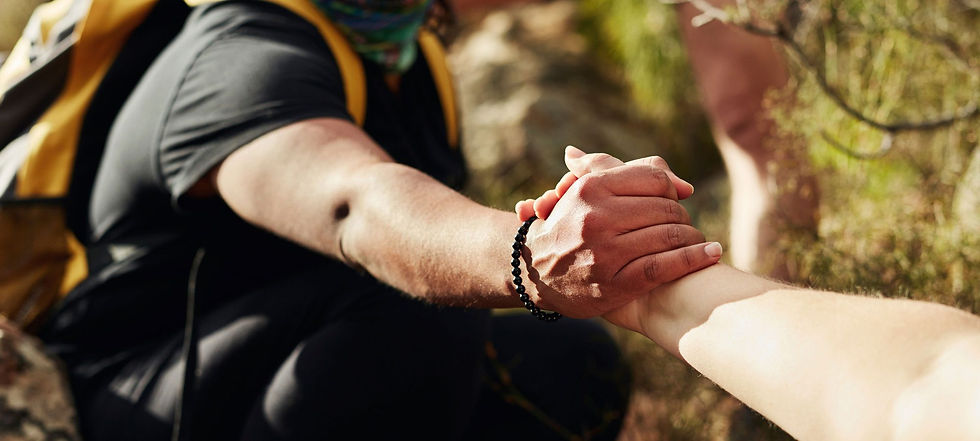
Loving a trauma survivor is a journey of resilience and understanding. As someone who has walked the challenging path of healing, I want to share insights that can help those who love trauma survivors navigate this complex terrain. Here are three vital things to know:
1. The Power of Patience and Presence: Loving a trauma survivor requires a unique kind of patience. There will be moments when the shadows of the past loom large, and we may need time to navigate through the memories and emotions. Your patient presence during these times is a beacon of support. Resist the urge to rush our healing process. Sometimes, just knowing that you're there, ready to stand with us, is a powerful source of comfort. Your patience becomes a bridge connecting our past struggles with the present moment, creating a space for healing conversations and shared growth.

2. Understanding the Language of Triggers: Triggers are the silent echoes of trauma, and they can sometimes catch us off guard. Your understanding of these triggers is crucial. They're not just random discomforts; they are remnants of experiences that cut deep. Learn the language of our triggers, understand their nuances, and be sensitive to the spaces where our wounds are most tender. When you approach triggers with empathy, it transforms the journey of healing into a shared experience. Instead of fearing triggers, your understanding becomes a pillar of strength, grounding us in the reality that we are not alone in our struggles.
3. Unconditional Love as a Healing Balm: The healing journey is often filled with moments of self-doubt and uncertainty. Your unconditional love serves as a healing balm, soothing wounds that may not always be visible. Remind us that love doesn't come with conditions or expiration dates. Your consistent acceptance, even when we stumble or when our past overshadows the present, becomes a guiding light. Unconditional love is not a cure, but it is a powerful force that accompanies us on the journey, whispering that we are worthy of love, exactly as we are.

Loving a trauma survivor is a profound act of courage and compassion. By cultivating patience, understanding triggers, and offering unconditional love, you become an integral part of the healing narrative. Together, we can forge relationships that are not just resilient but also transformative, turning the echoes of trauma into melodies of resilience and connection.
It is simple really; even through the worst times love fearlessly and without conditions.
Anastasia Jorquera-Boschman is a retired teacher, principal and educational consultant. She is currently spending her second career speaking, writing and holding space for people as a Trauma-Informed Empowerment Coach. She surrounds herself with her family and two pitbull puppies both of which are always on hand to love without hesitation.

Commentaires